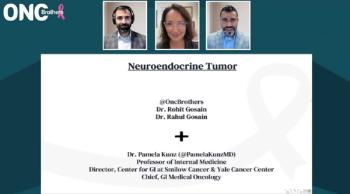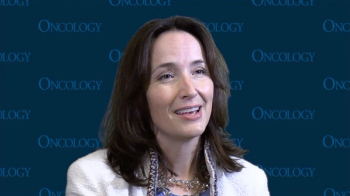Articles by Pamela L. Kunz, MD

Panelists discuss how next-generation sequencing can identify actionable mutations and molecular alterations in neuroendocrine tumors, potentially guiding personalized treatment decisions and clinical trial eligibility while advancing our understanding of tumor biology.

Panelists discuss how treatment selection for well-differentiated grade 3 neuroendocrine tumors requires careful consideration of factors including Ki-67 index, tumor biology, and disease progression rate to determine whether platinum-based chemotherapy or targeted therapies are most appropriate.

Panelists discuss how somatostatin analogues, while effective in controlling hormone-related symptoms and tumor growth in neuroendocrine tumors, face challenges including drug resistance, optimal dosing strategies, and timing of initiation in the treatment sequence.

Panelists discuss how accurate grading and classification of neuroendocrine tumors is crucial for determining prognosis and treatment strategies, focusing on key histopathological features.

Data from a ctDNA analysis of the phase 3 INTRIGUE study indicate that KIT mutational status may be associated with response to certain Tyrosine kinase inhibitors in GIST, according to an expert from the Yale Cancer Center in New Haven, Massachusetts.

At ASCO 2022, Pamela L. Kunz, MD, spoke about a phase 2 trial investigating temozolomide alone and temozolomide plus capecitabine in advanced pancreatic neuroendocrine tumors.




